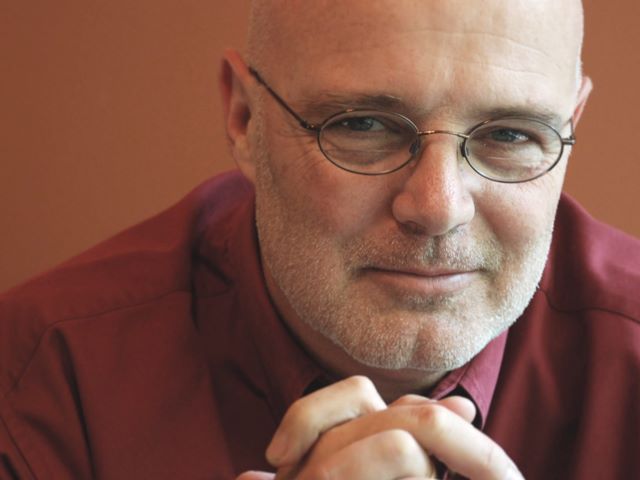By Jeff Brumley
New research predicting the rise of religious progressives and a conservative decline presents a challenge to those in the middle, including moderate Baptists, according to some leading Baptist and other Christian activists and thinkers.
The Public Religion Research Institute survey released this month examined the intersection of economics, politics and faith. Predicting the rise of religious progressives (currently at 19 percent) and the decline of conservatives (28 percent), it shows moderates firmly in the middle with the greatest numbers of all (38 percent).
The poll goes on to examine mostly the interplay between progressives and conservatives, attributing the latter’s decline to younger Americans seeking more action-oriented, and less doctrinal, expressions of faith.
But it’s that same factor, and the rise of the Millennial generation, that could spell trouble for moderate churches and denominations, according to experts who examined the study.
Moderates ‘must adapt’
One of them is Brian McLaren, who said the survey suggests moderate groups may have to risk alienating traditional members if they are going to attract and keep the Millennial and other younger Christians who are driving these trends.
Specifically, that means actively embracing the social justice causes dearest to that generation, including same-sex marriage rights and issues around poverty and hunger, said McLaren, a Christian theologian, author and activist known by many for his work on the emergent church concept.

Also, moderates must avoid framing the issue in terms of the old denominational battles that once defined them, he added.
“This is not a choice between the religious right and the old religious left,” McLaren said. “The ability to mobilize people for economic action will become more and more important.”
PRRI Research Director Dan Cox said the findings suggest that conservative churches may have to dampen their public identification for politically conservative causes to reduce the exodus of young people from their congregations.
Moderates, meanwhile, will suffer if they remain quietly in the middle of the big political and social issues of the day.
“Many churches, like political parties, will have to adapt their strategies to engage young people,” Cox said.
‘Lukewarm for some’
Baptists who studied the survey drew similar conclusions, adding that even those perceived as moderate – like the Cooperative Baptist Fellowship and American Baptist Churches USA – may struggle if they fail to make existing progressive leanings better known.
But doing that could also jeopardize those organizations, both now and in the future, said Bill Leonard, professor of Baptist studies and church history at Wake Forest University School of Divinity.

“CBF, ABC and sometimes SBC, they have such fragile connections to their constituent churches and individuals that public stands on these divisive social issues are very difficult for them,” he said.
At the same time, it’s unfair to characterize CBF and ABC exclusively as moderates. Leonard said they are progressive in varying degrees on women’s ordination, and admittedly less so in some congregations on issues surrounding homosexuality.
CBF’s evolving focus on missional church plants and ministries, neo-monastic communities and urban renewal efforts can also be described as progressive, he said.
Still, CBF has been quiet on same-sex marriage and gay clergy issues, allowing its churches and members to decide those issues for themselves.
“CBF folks have often … raised questions about what it means to be moderate, and that often meant ‘lukewarm’ for some people,” Leonard said. “So I think the term ‘moderate’ is in need of some revisiting for CBF types.”
Opportunity for moderates
Others, including Baptist Brian Kaylor, see in the PRRI data an opening for moderates to capitalize on what neither the progressives nor the conservatives usually have: balance between two extremes.
Moderates can brand themselves as places where extreme positions, right or left, are avoided and where dialogue between differing viewpoints is accepted, said Kaylor, a communications professor at James Madison University who speaks and writes on issues of faith and politics.

“There is an opportunity there, a pendulum swing away from the older generations, which could end up (on the left) with the same overbearing” attitudes often attributed to the Christian right.
However, they must not let a balanced approach be a passive approach on controversial social and political issues, he added. “If you remain silent, the only voices are on the extreme left and the extreme right.”
‘Baptists: early progressives’
But there are also multiple voices among progressives, which is one of the movement’s draws, said Carol Blythe, president of the Alliance of Baptists.
Blythe said topics ranging from support of Palestine and gay marriage to gun violence and climate change regularly surface during meetings of the progressive organization – but not always with one voice.
“We are not afraid to talk about things,” she said. “We don’t avoid controversy.”

That approach brings in a lot of new members. Blythe said many come to the Alliance from moderate groups, and others, just the way the PRRI survey suggests. The 139-church Alliance has grown for the past decade, adding one to two new partner congregations each year.
“I think Millennials respond well to that kind of thing,” she said.
Originally, Baptists were never moderate or conservative, but always pushing social and political boundaries, said Blythe, a member of Calvary Baptist Church in Washington, D.C. It’s that spirit that can attract the restless, spiritually hungry Millennials and other young Christians to progressive Baptist causes, she said.
“Baptists were early progressives,” Blythe said.
